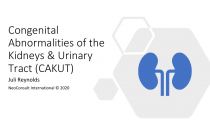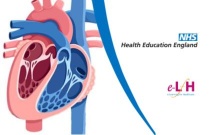Management of Nutritional Disorders in Paediatrics
Centre for Global Child Health at The Hospital for Sick Children (SickKids) in Toronto, Canada
This course provides health care professionals with a comprehensive overview of the prevention, screening, referral, and management of malnutrition in young children. It focuses on infants under six months at risk of poor growth and development, as well as children under five with moderate acute malnutrition (MAM) or severe acut....
Gender and Nutrition in a Global Context
Centre for Global Child Health at The Hospital for Sick Children (SickKids) in Toronto, Canada
This course gives health professionals a foundational understanding of key gender concepts, such as inequality, equality, equity, and the difference between sex and gender. It explores how gender roles and cultural norms affect nutrition outcomes, leading to gender-specific challenges. Participants will learn to apply gender-res....
Feeding of Sick or High Risk Infants
Dr. Juli Reynolds PhD
Neo Consult The course is designed for nurses and midwives, The course consists of several sections including body fluids, fluid assessment in the newborn, feeing of the sick infant. The theoretical concepts and knowledge gained will enable the nurse or midwife to identify, assess and manage infants in the different categori....
Disorders of the Cardiovascular System
Dr. Juli Reynolds PhD
Neo Consult This course is suitable for anyone concerned with the management of congenital heart disease in the newborn. This is a basic course and covers the presentation, diagnosis, and treatment of a variety of problems in congenital cardiac diseases. Target audience: - Neonatal trainees. - Neonatal nurses. - Pediatric....
Ambiguous Genitalia
Dr. Juli Reynolds PhD
Neo Consult This course has been developed for nurses working in the Neonatal Intensive Care Unit. The course will enable you to develop your performance in practice, theorise practice and develop the knowledge and skills required to be competent in the role of a neonatal intensive care nurse. Target Audience: Neonatal Inte....
Congenital Abnormalities of the Kidneys & Urinary Tract (CAKUT)
Dr. Juli Reynolds PhD
Neo Consult Congenital anomalies of the kidneys and urinary tract (CAKUT) are one of the most common malformations diagnosed in newborns. The pathogenesis of CAKUT is multifactorial; both specific genes and environmental factors (e.g., in utero exposure to ACE inhibitors) have been implicated in the development of CAKUT. Even t....
Blood Gas Interpretation for Neonates
Dr. Juli Reynolds PhD
Neo Consult This course has been developed for nurses working in the Neonatal Intensive Care Unit. The course will enable you to develop your performance in practice, theorise practice and develop the knowledge and skills required to be competent in the role of a neonatal intensive care nurse. Target Audience: 1) Neonata....
Antepartum Haemorrhage
Dr. Juli Reynolds PhD
Neo Consult This course is designed to offer postgraduate education to resident obstetricians, midwifes and nurses working in ante- and postnatal wards as well as in the delivery room. It will support you to change and develop your ways of thinking, inspiring you to become an independent learner who thinks creatively to sol....
Interventricular Haemorrhage (IVH)
Dr. Juli Reynolds PhD
Neo Consult This course has been developed for nurses working in the Neonatal Intensive Care Unit. The course will enable you to develop your performance in practice, theorise practice and develop the knowledge and skills required to be competent in the role of a neonatal intensive care nurse. Target Audience: 1) Neonata....
Skills Assessment - First Antenatal Examination
Dr. Juli Reynolds PhD
This course is designed for midwifes and nurses working in antenatal wards. The session includes; Skills assessment guidelines when taking history from a pregnant woman. Skills Assessment Tools.
Examination of the Abdomen in Labour
Dr. Juli Reynolds PhD
Neo Consult This course has been developed for nurses working in the Neonatal Intensive Care Unit. The course will enable you to develop your performance in practice, theorise practice and develop the knowledge and skills required to be competent in the role of a neonatal intensive care nurse. Target Audience: Midwifes....
Antimicrobial Drugs
Oliver Hamilton
This session describes the antibiotic drugs used most commonly in anaesthesia and critical care.
Antidepressants
Hannah Richards
This session describes the drugs commonly used in the treatment of mood disorders and psychosis, their mechanism of action and important adverse effects.
Corticosteroids, Thyroxine and Drugs Used in Thyroid Disorders
Michael Edward O'Connor
This session describes corticosteroids and their role in health, as well as the use of extrinsic corticosteroids in disease states, the complications associated with this use relevant to the anaesthetist, thyroid hormone production, and treatment of thyroid disorders.
Heart Valve Disease - Introduction
Dr Dominik Schlosshan
This session covers the epidemiology of heart valve disease.
Heart Valve Disease - Treatment and Follow up
Dr Norman Briffa
Welcome to this session on the treatment and follow-up of heart valve disease (HVD). This session aims to explain: 1. indications for intervention in patients with HVD (aortic stenosis and mitral regurgitation) 2. which therapeutic options are available 3. the risks and benefits of different treatments, which patients ne....
Module 2: Four 4S's of Disaster Management
Amyna Husain, Mark Baker, and Lisa Umphrey
This module offers an overview of the four “S” approach to disaster management and provides an understanding of all the different resources needed to effectively respond to a disaster in the pediatric context.
Agreeing a Plan of Management and Care
Vivienne Barros D’Sa, Clare Rayment
Once the patient's symptoms have been assessed a working diagnosis can be made. The clinician can then propose a plan for improving symptoms, discussing any advantages, disadvantages and practicalities with the patient. This session examines some of the different factors involved in agreeing a plan of management and care.....
SESSION 2: Extreme Weather Hazards: Tropical Cyclones and Flooding
KUTANE Waltaji Terfa and Peter Ebongué MBONDJI
In this session, we will explore the increasing risks of extreme weather events, such as tropical cyclones, inland and coastal flooding, driven by climate change in Africa. Participants will gain insights into the short-term and long-term health threats posed to patients and communities impacted by these events, and learn about....
SESSION 6: Vector-borne and Zoonotic Diseases
Desiree LaBeaud, and Adugna Woyessa
This session provides a comprehensive exploration of the environmental processes changing as a result of climate change and their impact on the prevalence, incidence, and distribution of vector-borne and zoonotic diseases including Malaria, Dengue fever, Rift Valley fever, Schistosomiasis, Chikungunya, and Zika. Through case st....
SESSION 7: Climate Extremes, Agriculture and Food Security
Dr. Beatrice Ekesa-Onyango, Kiswendsida Guigma, and John Otieno Otieno
This session focuses on the complex interplay between extremes of temperature and precipitation and their impacts on food security and malnutrition in the African continent. Participants will gain insights into how climate change-induced variations in temperature and precipitation patterns affect agricultural productivity and ex....
Symptom Management Complicated by Coexisting Conditions
Shaheen Khan
This session outlines some of the considerations to be taken into account when symptom management is complicated by coexisting conditions. This session outlines some of the considerations to be taken into account when symptom management is complicated by coexisting conditions.
Being a Rehab Nurse
Anna Reid
Being a rehabilitation nurse: the many hats we wear, the lives we touch, and what makes us special.
Tools and System Reporting
The Empower Group https://www.empowerschoolofhealth.org/
By the end of this course, you will have learnt about the following subjects: Tools and System Reporting.
SESSION 2: Vector-borne Disease
Tracy Kelly
This presentation discusses the relationship between climate change and vector-borne diseases (VBD), including water-borne, food-borne, and zoonotic diseases. It highlights the roles nurses can play in VBD prevention and identifies intersectoral measures that mitigate VBD risks.























